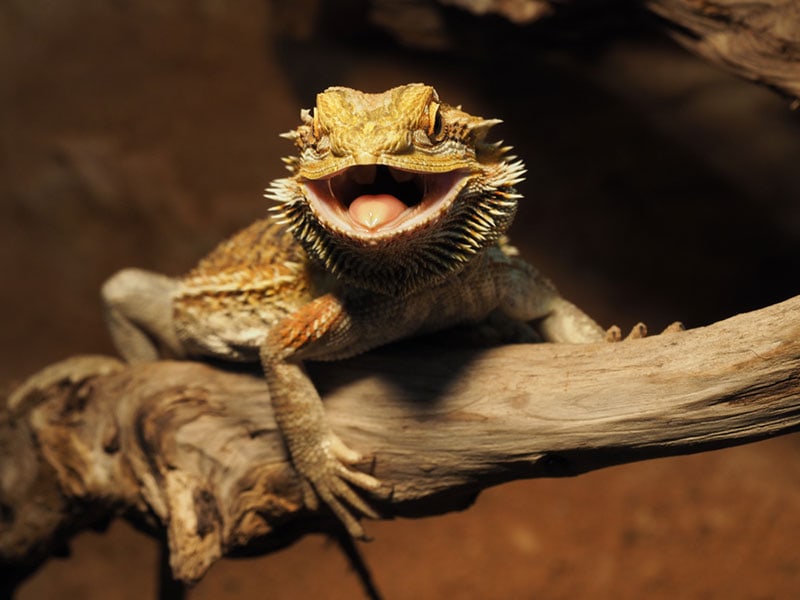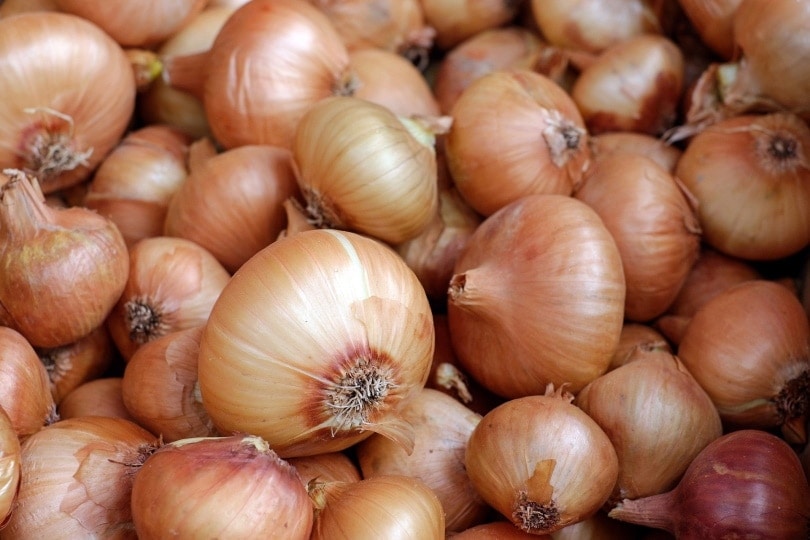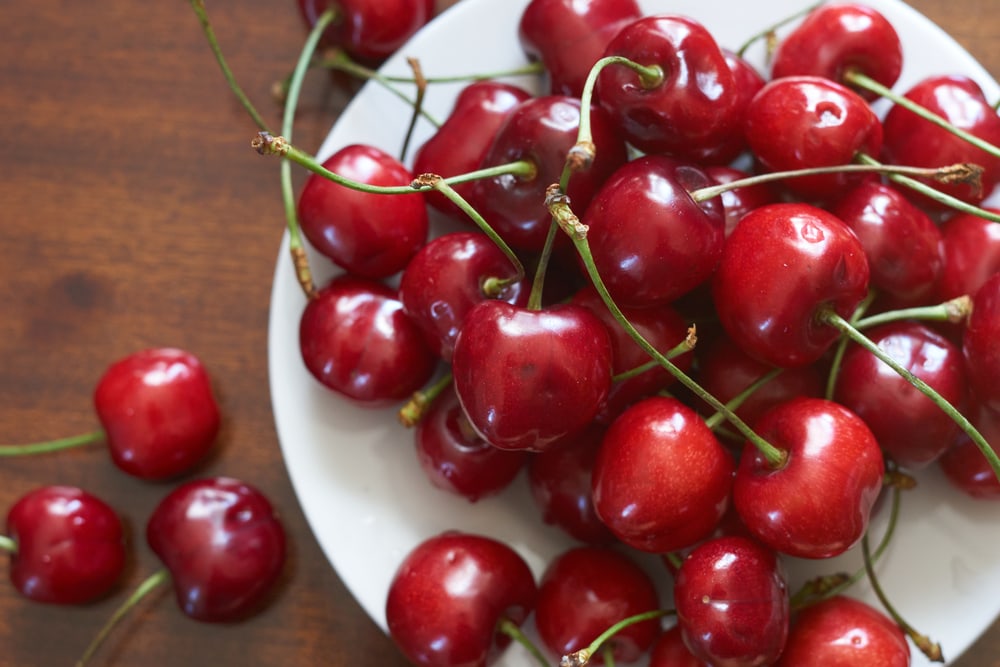Can Bearded Dragons Eat Blackberries? Vet-Approved Nutritional Facts & FAQ
Updated on

Click to Skip Ahead
Bearded dragons are popular pet lizards that are best known for their namesake beards (which are very prominent in males). When it comes to being a responsible bearded dragon owner, you need to ensure that they are being fed a healthy diet with safe treats.
Feeding your bearded dragon the wrong foods can be detrimental to their health and may contribute to certain health issues. Although bearded dragons are omnivores that can eat both plant and animal-based ingredients, fruits should make up only a small portion of their diet.
Blackberries are among the safest fruits for bearded dragons, but nonetheless they should only be fed in small quantities as an occasional treat.
Are Blackberries Safe for Bearded Dragons?
Blackberries are considered safe for bearded dragons if they are not fed very often. Most bearded dragons will enjoy the sweet and juicy taste of blackberries, but you should avoid overfeeding them. You should ideally include blackberries in your bearded dragon’s diet only according to veterinarian’s advice. This is because fruit should only make up a small percentage of your bearded dragon’s diet.
As a bearded dragon owner, you should ensure that your bearded dragon is only fed berries alongside a balanced and complete bearded dragon diet. Fruit should not be a staple for these reptiles, even though many household fruits are safe for them.
You can give adult bearded dragons one blackberry once or twice a week as a food topper. Young and developing bearded dragons shouldn’t get berries very often, because their dietary needs are slightly different from adults. The blackberries should be rinsed under water to remove any dirt and debris before being fed.

Nutritional Benefits of Blackberries
Before feeding blackberries to your bearded dragon, you might be wondering what nutrients this fruit has to offer them.
- Water: 88.2 grams (g)
- Carbohydrates: 9.61 g
- Fat: 0.49 g
- Protein: 1.39 g
- Fiber: 5.3 g
- Calcium: 29 milligrams (mg)
- Phosphorus: 22 mg
- Beta Carotene (converts to vitamin A): 128 micrograms (µg)
Like most berries, blackberries contain many antioxidants, which are beneficial for your pet. They contain other vitamins and minerals which may offer some benefits to your bearded dragon as well. In addition, they are exceptionally low in oxalates and goitrogens – compounds that are undesirable for bearded dragons.
Furthermore, blackberries are also lower in sugar than some other fruits. This is ideal since bearded dragons should not have a diet that is high in sugar.
Important: You should always consult with your bearded dragon’s veterinarian before introducing new foods into their diet. This is crucial if your bearded dragon has any existing health issues, is young and developing, or is sensitive to new foods.
What Other Berries Can Bearded Dragons Eat?
Aside from blackberries, several other berries are safe for bearded dragons. However, they should only be fed as a treat in moderation just like blackberries.
Below is a list of safe berries that your bearded dragon may eat. Speak to an exotic veterinarian before introducing new berries into your bearded dragon’s diet first.
- Blueberries
- Cranberries
- Raspberries
- Acai berries (mashed to prevent choking)
- Black currants
Any pits or seeds of the fruit should be removed before feeding them to your bearded dragon. This can help prevent choking or potential toxicity.

What Happens If Your Bearded Dragon Eats Too Many Blackberries?
In a strict sense, when fed in moderation, blackberries are very much risk-free for bearded dragons. With a calcium-to-phosphorus ratio of 1.5:1, they offer some of the best ratio of these minerals from fruit sources. The primary concern when feeding your bearded dragon blackberries is that excessive consumption might lead to an upset stomach, as their high fiber content might not agree with their digestive tract. This could lead to diarrhea.
Like all fruits, blackberries contain sugar. When compared to other fruits though, their sugar levels are extremely low. The sugar in fruits may be a contributing factor for dental disease in bearded dragons. However, the lower amount of sugars in blackberries probably makes them a better choice than other fruits.
Another potential risk of blackberries for bearded dragons is that they might be a considerable choking hazard if offered whole. However, this risk can be easily circumvented by chopping them in small pieces before mixing them into your pet’s salad.
All in all, when served in moderation, blackberries are very much risk free.
Please note that a diet high in fruits is not recommended for bearded dragons under a year of age. This is because young bearded dragons are more insectivorous, whereas adults tend to be more herbivorous. Your bearded dragon should be getting most of their daily nutrition from insects, leafy greens, and vegetables rather than from fruits.
In Conclusion
When fed alongside a healthy and balanced diet, adult bearded dragons can eat blackberries. It’s best to only give blackberries to your bearded dragon in moderation since fruits should not make up a large percentage of both young and adult bearded dragon diets. However, bearded dragon owners can be assured that blackberries are non-toxic and safe for bearded dragons to eat occasionally.
Featured Image Credit: Alie04, Shutterstock












